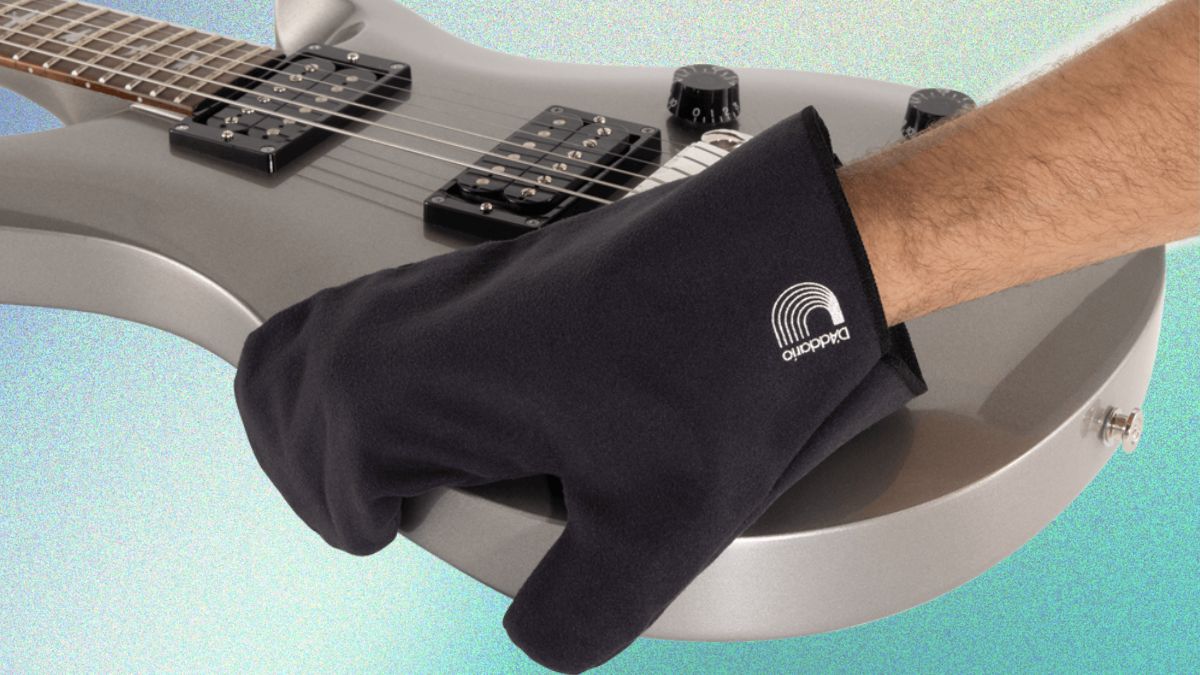Justus West on forging a successful career playing guitar with a producer’s perspective – and how it all started with a venomous spider bite
The Grammy-winning producer discusses thinking outside the box on Mac Miller records, injecting fresh sounds into hip-hop, and the secrets behind his trademark ambient tones
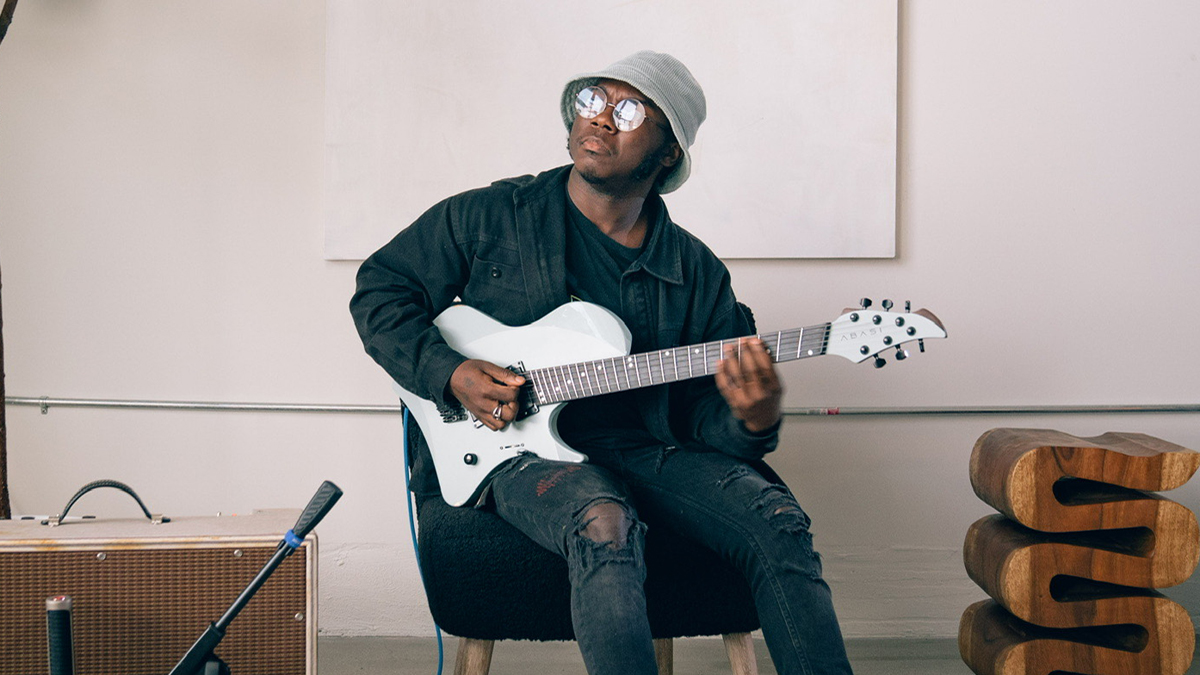
All the latest guitar news, interviews, lessons, reviews, deals and more, direct to your inbox!
You are now subscribed
Your newsletter sign-up was successful
To our knowledge, Justus West isn't Spider-Man. But, like Marvel's Peter Parker and Miles Morales, a chance arachnid encounter in West’s teens changed the course of his life. A guitarist who’s made his biggest mark in hip-hop, R&B, and neo-soul, West’s big break came after an unlikely pairing with country legend Vince Gill.
As he explains, “The year prior, I had been bitten by a brown recluse spider and had a very rare reaction to the venom. I had been in the ICU for over a month and from all the different medications, I couldn’t really walk anymore. After four or five months, I was able to start playing again.”
Stuck at home, West saw an ad for Guitar Center’s OnStage with Vince Gill competition. “I was like, ‘Oh sure, I’ll give it a stab!’”
West didn’t expect much, but he wound up in the final five: “I saw my picture on the competition main page and I was like, ‘This is insane!’” Before this, Justus had performed around his native Kansas City, Missouri, “playing in church, playing in the jazz district”.
With a gospel background and a love of instrumental metal, West was not a natural fit for a country gig. Thanks to his outstanding ear and all-round musicality, though, the final saw West slamming out hybrid picking licks like he grew up on a diet of Brent Mason and Brad Paisley.
“Country is nowhere near my background, so it was a huge honor to go there and be accepted,” he enthuses. “A lot of people don’t realize Vince is an incredible guitar player, so it was cool to be up there chicken pickin' with one of the greatest ever, and to be told I actually did a good job. Because of that, I ended up moving to Nashville, and played with Vince a few times.”
West used OnStage to springboard into a session career, landing arena tours with '90s R&B group Xscape and with Miguel. He’s since contributed to albums by John Legend, Ty Dolla $ign and Alicia Keys, and has worked with Snoop Dogg and Ariana Grande. With John Legend, he received a producer credit, reflecting his increasing studio mastery.
All the latest guitar news, interviews, lessons, reviews, deals and more, direct to your inbox!
Despite the session success, West remains primarily focused on being an artist, viewing himself as a singer first. His original music reflects his love of D’Angelo, Animals As Leaders, and his hip-hop session credits, and because of this he often chooses sideman gigs that give him space to express himself.
“Personally, I always add color to the gigs I’m on. Most of the artists I played for, a lot of their songs didn’t even have guitar parts because they were produced from a beat perspective rather than a live one. That automatically opened up my lane to be more inventive in terms of textures, chords and voicings.
“Melanie Fiona encouraged me to be my own artist. Even when I went out on tour with her she allowed me a singing solo and a playing solo. I didn’t feel like I was just a random hired gun. With Miguel, though, a lot of his newer stuff was very guitar-forward, and I had to play the written parts.
If you’re a more expressive player, it’s nice to find spaces where that’s celebrated. You’re more likely to build notoriety by not being the ‘box’ person
“They even had the tones pre-built into a Kemper for me so I didn’t even get to pick an amp. If you feel that you’re a more expressive player, then it’s nice to find spaces where that’s celebrated. You’re more likely to build notoriety by not being the ‘box’ person.”
Perhaps West's most successful side role so far was with Mac Miller, the rapper who released six US Top 5 albums in a row before dying tragically at 26. “I’ve played for some other rappers and usually it’s just like, ‘Play what you feel, crank the amp up and we’re just going to go crazy on stage.’ Not really many notes to be played or parts to be thought of,” he explains.
“Mac paid special attention to parts. He understood his own music, which for artists and especially rappers is a very rare thing. He played all the instruments as well, so he wasn’t spouting directions just because he was in charge.”
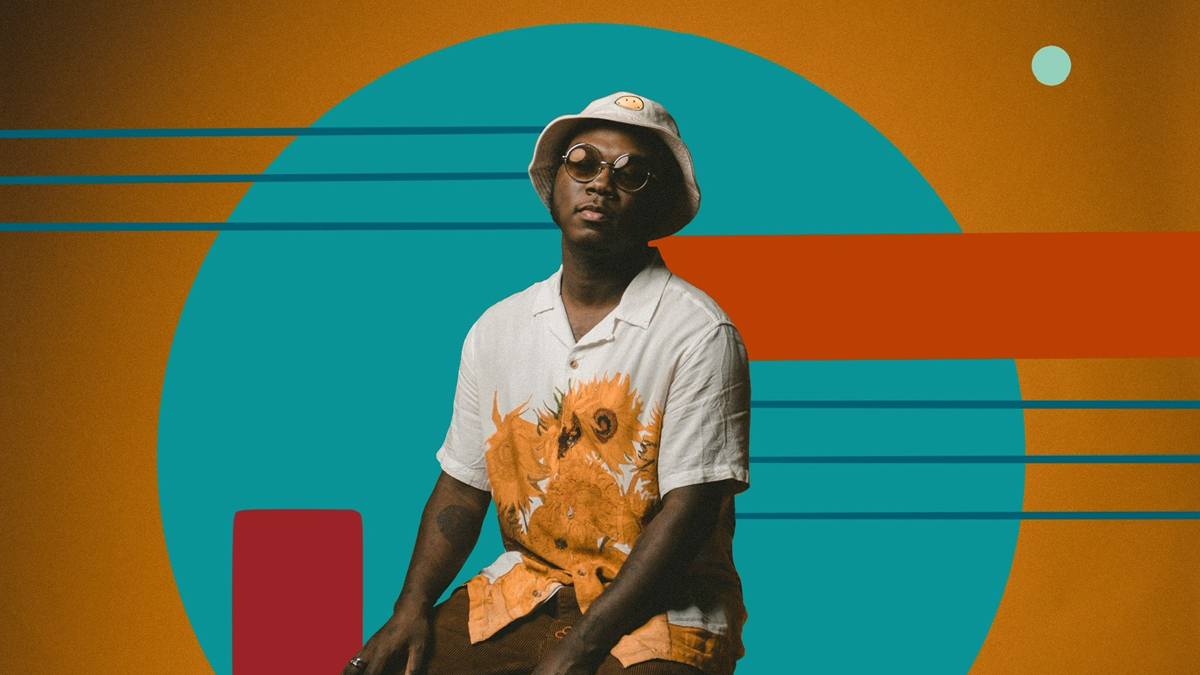
West has earned a reputation for integrating guitar into hip-hop in original ways, a skill he developed using the same great ear that allowed him to slot into Vince Gill’s band. “I just started naturally reacting to what I was hearing,” he says. “My ear always understood what was happening in hip-hop because it’s a derivative of gospel and R&B.
A lot of hip-hop producers love me because I’m approaching the guitar from a different angle. What I do is just not normally done in hip-hop
“A lot of hip-hop producers love me because I’m approaching it from a different angle. It became my thing, because doing washed-out reverb-y tones, messing with delay trails and all that stuff – it’s just not normally done in hip-hop.”
Those extreme ambient tones are a Justus West signature. But where most guitarists using that much delay and reverb play sparingly, West will happily shred over a wash of echo. How does he stop it becoming a mush?
“There’s only certain chords and certain modes I move through when I’m doing very reverb-heavy movements,” he explains.
“The biggest thing that makes it work is focusing on stacking notes and tones that really go with each other, so that you’re building harmonically. Stay away from things that could be too dissonant. I’ll pick four or five notes and try to repeat them so that it’s constantly stacking those frequencies and warming up that sound.” Essentially, it’s a more ambitious version of what Brian May did on Brighton Rock, though in a totally different style.
Still, West takes an outrageous level of care adjusting his patches so they have enough clarity to work in a mix. His signal chain features multiple delays and reverbs with separate EQ and compressors between each. Thinking like a producer, he says, has changed his approach to making patches.
“Subtly controlling the frequency response of each pedal, and then editing the amount of compression, either in between each effect or at the end of the chain, can make a huge difference,” he explains. “Even if I’m using a real amp, I’ll still use a [Valhalla DSP] Valhalla Shimmer plugin, or even the Ableton stock reverb. That way I can EQ after each device.
“By the end, you have a great ambient sound. I used to think ambience was just cranking everything, but often it ends up being too cloudy. Try to consider what you’re using each element for. Are you using one for a short throw of reverb and one for a long throw? Are you using the delay to create a wider spatial sense? There’s a million different reverbs. Yeah, if you crank them all up it’ll sound spacey, but you can craft ambient tones if you consider what each tool is actually in the chain for.”
When he has to use physical pedals, West has a few tricks. “The order typically changes, but I find a Chase Bliss Thermae into a [Chase Bliss Audio] MOOD and EarthQuaker Devices Afterneath can be pretty intense,” he relays. “It’s like really cavernous long delay trails. If I’m feeling that, I’ll use the Afterneath. If not, I’ll use the [EarthQuaker] Avalanche Run delay/reverb.”
West's producer’s-eye view hasn’t just made his tones better; it’s improved every aspect of his playing. “When you just play one instrument, you rarely come up for breath to understand what role that instrument really plays in each different scenario,” he muses.
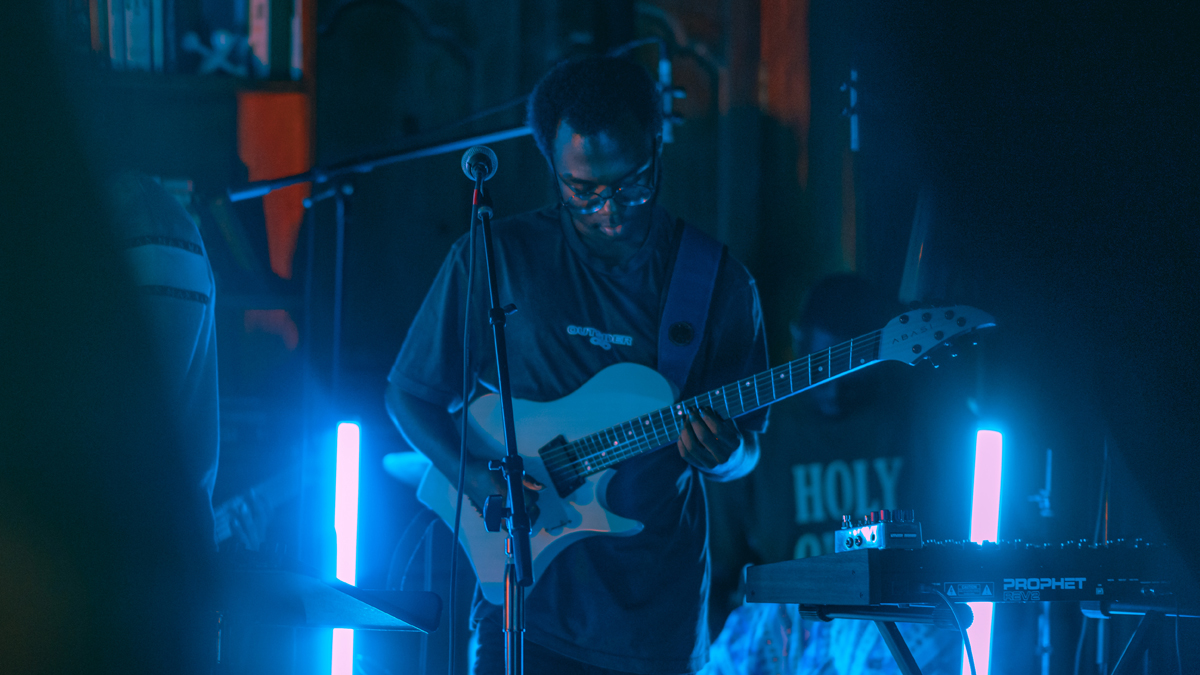
“Your role can drastically change depending on the setting. When you really start looking at instruments in the mix, it helps you to build great tones, write great parts and decide when you should create a contrasting melody.
Your role can drastically change depending on the setting. Sometimes it might be a thousand notes you need to play and sometimes it might just be one
“When my friends and I jam we often sound like an album. People will be like, ‘You guys just made that up?’ That comes from not looking at a jam as, ‘Everybody go for broke at the same time!’ We’re still going, ‘What role does this part play?’ If the guitar is playing something percussive, maybe the drums can pull back. Sometimes it might be a thousand notes you need to play, and sometimes it might just be one.”
In fact, West and friends’ jams are so good, they are captured on his latest album, Somewhere in Los Angeles: “I had this grand idea to convert a good friend’s living room into a performance venue. I sat on it for a long time. It was supposed to come out at the top of the pandemic!”
Many guitarists met Justus West through his video lesson for Fender on double stop licks. While he’d played some tasty double stops with Vince Gill, these are in another league entirely: West shreds around the neck harmonizing with himself. “That was 100% inspired by Isaiah Sharkey,” he admits. “When D’Angelo released Vanguard, there were so many incredible guitar licks in there.
“I stole a lot of licks from him. I would take that and go back to shredding some Animals As Leaders, Plini, Polyphia or even Soundgarden. I’m trying these Sharkey licks and I’m like, ‘Whoa, I’m finding a bridge here!’”
As a home-schooled teenager, West practiced seven hours a day. All that changed with the brown recluse bite. Far from giving him superpowers, Justus found himself severely limited. “I had a good amount of scar tissue and nerve damage in my left arm,” he explains.
Being in the moment and feeling what you’re playing on the guitar matters the most
“Being an avid video gamer, I have carpal tunnel in both wrists, so I have to take long breaks between playing. It’d be nice if I could play for eight hours a day, but my hands don’t like that anymore. I’m finding that being in the moment and feeling what you’re playing matters the most.”
He has wisdom for players who want to shred, too: “Unless you’re doing like 30 or 45-minute bursts, practicing can be a really dangerous thing when you’re trying to push speed limits. Check your arm posture, back posture, guitar placement. It’s really easy to cement in bad habits.
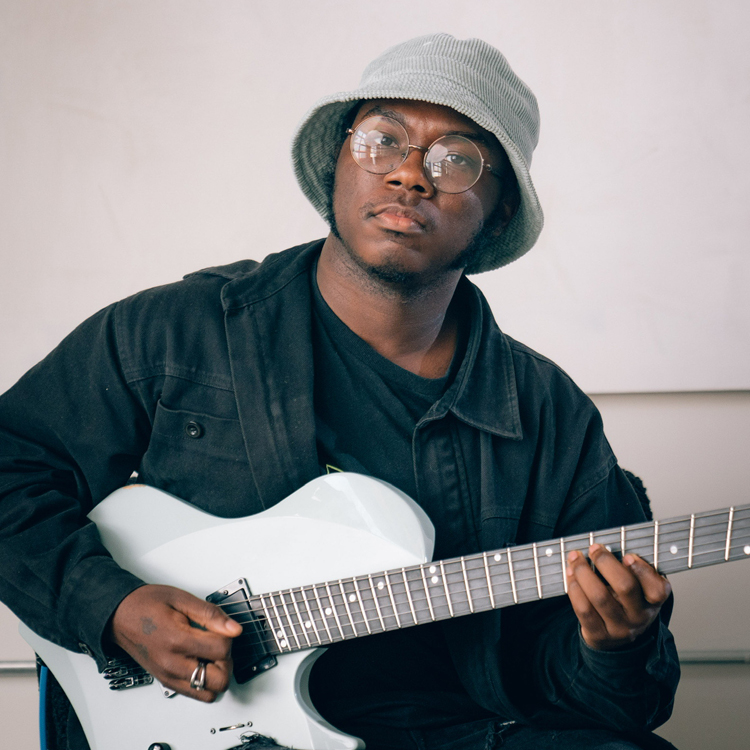
“Before you even learn how to play fast, learn when to play fast and how to build up momentum. On Instagram, we just post 60 seconds, not the minute-and-a-half build up before it. Even Thundercat told me after tours he has to take a few months off.
Like any guitar geek, West comes to life when talking about his gear. “Right now I’m favoring my new PRS,” he raves. “I went with the shorter scale length specifically for ease of playing. Because it was custom-made I got to really have a say in how it came out, and weight was at the top of my list. I want to play more shows!
“That’s another reason why I like my blue fan-fret Abasi Concepts. It’s so light but the tone is so big, so when I play live I usually use that guitar. I also have another Fender Stratocaster that I play in the studio. It’s got a set of vintage Seymour Duncan pickups and this gold flake color. It’s one of my favorite guitars; I just don’t play it in videos that often for some reason.”
“Each guitar has different impacts on my playing. The Abasi doesn't have a tremolo, which is a big part of my solo phrasing. However, sometimes I feel like I can actually be more creative on that guitar because I don’t have a trem to fall back on.
2022 is set to be good for Justus West. “I’ll be dropping tons of new music this year, a few new singles as well as an album,“ he teases. “We are currently working on the follow-up to Somewhere in LA, which will be Somewhere in Kansas City, my hometown. I have a lot more tricks up my sleeve this time, so it’s going to be a stellar follow-up.”
- You can support Justus West by checking out his Instagram page and YouTube channel, and by visiting his official website.
Jenna writes for Total Guitar and Guitar World, and is the former classic rock columnist for Guitar Techniques. She studied with Guthrie Govan at BIMM, and has taught guitar for 15 years. She's toured in 10 countries and played on a Top 10 album (in Sweden).






